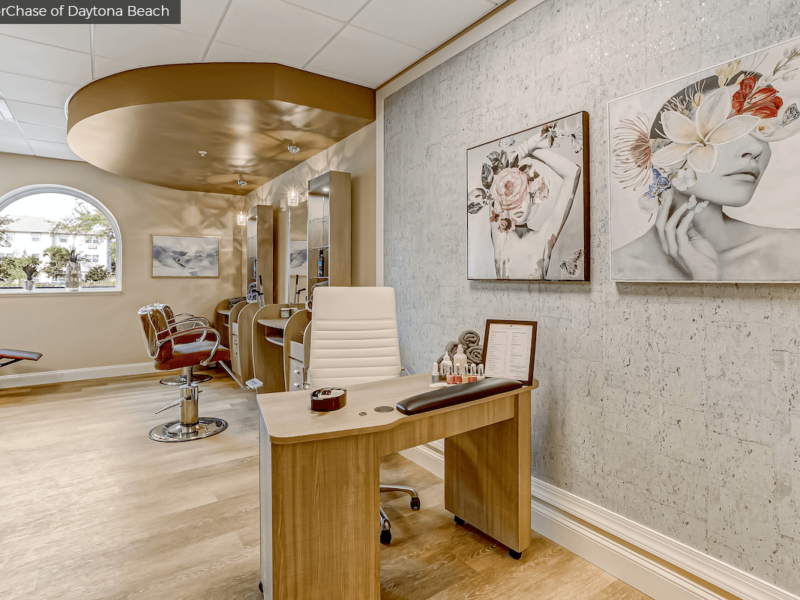Senior Health: Tips for Eye Health & Nutrition

Your eyes play a significant role in your life, making it crucial that you pay attention to their health. As we age, our eyes can become more susceptible to developing certain ailments that can impair vision.
Maintaining eyesight is an integral part of senior health, as your vision can help support independence. HarborChase Senior Living, with retirement communities throughout the United States, knows how independence, or lack of, can impact a retiree’s lifestyle. We want to highlight senior eye health, as well as ways to maintain and protect your eyesight.
Nutrition and Eye Health
“People often believe that failing eyesight is an inevitable result of aging or eye strain. In truth, a healthy lifestyle can significantly reduce the risk of eye health problems (Medical News Today).
Your diet can impact your overall health as well as the health of your eyes. There are a variety of foods that can benefit eye health and positively impact your overall well-being. For example, foods that are rich in antioxidants and vitamins A and C play a vital role in maintaining our eyesight and health.
Nutrients such as omega-3 fatty acids also play a significant role in the health of our eyes and eyesight. Omega-3 fatty acids, commonly found in fatty fish (salmon, tuna, herring, mackerel, etc.), have properties that are important to the condition of the macula (functional center of the retina). If the macula deteriorates due to a lack of proper nutrients, a person can experience blurry vision.
Red peppers, sunflower seeds, nuts, sweet potatoes, and leafy greens all contain vitamins and nutrients that can help maintain and strengthen eyesight.
According to the American Optometric Association, the following vitamins and nutrients are also key to the health of our eyes:
- Lutein & Zeaxanthin – Found in green leafy vegetables and eggs, studies show that these nutrients reduce the risk of chronic eye diseases, including age-related macular degeneration and cataracts.
- Vitamin C – An antioxidant found in fruits and vegetables, vitamin C lowers the risk of developing cataracts and also, when taken in combination with other nutrients, can slow the progression of age-related macular degeneration.
- Vitamin E – Another powerful antioxidant, vitamin E is found in nuts, fortified cereals, and sweet potatoes and studies indicate it can protect cells in the eyes from unstable molecules called free radicals, which can break down healthy tissue.
Long-Term Oxidative Stress
Oxidative stress is defined as “an imbalance of free radicals and antioxidants in the body, which can lead to cell and tissue damage.” While oxidative stress occurs naturally, some factors may increase a person’s risk of long-term oxidative stress, including:
- Diets high in fat, sugar, and processed foods
- Smoking cigarettes or other tobacco products
- Certain medications
- Pollution
“Making certain lifestyle and dietary changes may help reduce oxidative stress. These may include maintaining a healthy body weight, regularly exercising, and eating a balanced, healthful diet rich in fruits and vegetables (Medical News Today).”
Protect Your Eyes
Research shows that long-term exposure to the sun with no protective eyewear can cause cataracts. When spending time in the sun, you should always remember to protect your eyes from UV rays with appropriate eyewear. A large hat with a protective brim can also assist with protecting and shielding your eyes from the harsh rays of the sun.
Beyond the sun, more and more people are spending time on digital devices, such as smartphones or tablets. “Harmful blue light can impact your eye health and ability to get quality sleep. If you already wear glasses, be sure to speak with your doctor about incorporating blue light blocking technology to your current prescription (BluTech).”
Exercise & Eye Health
Exercise improves blood circulation, which helps improve oxygen levels to your eyes, removing toxins and promoting healthier eyesight. Aerobic exercises can help lower intraocular pressure (pressure in your eyes), which helps protect the retinal ganglion cells. Walking, yoga, and stretching can all be effective and easy methods that promote senior health and prevent eye conditions like glaucoma.
Frequent Visits to an Optometrist
The most obvious best practice for maintaining eyesight and senior health is to visit an optometrist frequently. As our eyes and vision change, we require different lenses to help protect our eyes from unnecessary strain. An optometrist will ensure you have the appropriate strength lenses and can provide steps or instructions to protect or maintain your eyesight.
Lifestyle changes such as diet, exercise, and healthy habits can improve all aspects of senior health, including eyes and eyesight. If you are looking for more senior health resources, we encourage you to visit our HarborChase Senior Living blog!
Tags: Health Habits, Nutrition
November 22, 2024
HarborChase Senior Living shares tips to help you strike the perfect balance between ensuring your family member’s safety and encouraging their autonomy.
November 15, 2024
HarborChase Senior Living showcases how our upscale salon services enhance the daily lives of residents with top-tier care and true indulgence.

